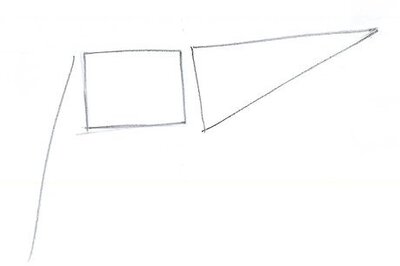
views
New Delhi: Visiting Bangladesh Prime Minister Sheikh Hasina on Saturday raised her concerns with Prime Minister Narendra Modi over roll out of National Register of Citizens (NRC) in Assam, an exercise carried out to identify genuine Indian citizens living in Assam and weed out illegal Bangladeshis.
Bangladesh said it was keeping an eye on developments relating to NRC rollout even as India conveyed to it that the issue was an internal matter of the country. "Prime Minister Modi has explained to Prime Minister Hasina the process that India has put up in terms of making sure that everybody is eventually included in this (NRC)," Bangladesh foreign secretary Shahidul Haque said.
"We were told that this is an internal matter of India. Our relationship is best of the best at present. But at the same time we are keeping our eyes open (on the issue)," Haque said at a press conference.
Asked about Home Minister Amit Shah's comments that illegal Bangladeshi's from Assam would be deported, the Bangladeshi foreign secretary said: "We should not make a crisis out of nothing at this stage and we should be able to wait and see."
Government sources said the Indian side conveyed to Hasina that publication of the NRC was a court-monitored process and the final scenario on the issue is yet to emerge. Haque said Bangladesh is not worried about the issue at the stage.
The NRC has been prepared to identify genuine Indian citizens living in Assam since March 24, 1971, or before, and identify illegal Bangladeshi migrants in the state. Out of 3.3 crore applicants, over 19 lakh people were excluded from the final NRC published on August 30.
Prime Minister Hasina had taken up the issue of NRC with Modi during their bilateral meeting in New York last month on the sidelines of the UN General Assembly.
After the roll out of the NRC, the Ministry of External Affairs said people left out of it are not "stateless" and will continue to enjoy all the rights as before till they exhaust all remedies available under the law.
In New York last week, Hasina told Modi that the NRC has become a matter of “great concern” for Bangladesh. Modi is learnt to have replied that there is “nothing to be worried” about since India and Bangladesh have good relations.
During Saturday’s bilateral talks, India and Bangladesh signed seven pacts including one for setting up of a joint coastal surveillance systems as PM Modi and his Bangladeshi counterpart held "productive and comprehensive" talks to further broadbase bilateral ties.
The issue of Rohingya refugees also figured in the talks and the two prime ministers agreed on the need to expedite safe, speedy and sustainable repatriation of the displaced persons to their homes in the Rakhine state of Myanmar, officials said.
A joint statement said Modi appreciated the zero-tolerance policy of the Bangladesh government against terrorism and commended Hasina for her resolute efforts to ensure peace, security and stability in the region.
Both leaders reiterated their strong commitment to eliminate terrorism in all its forms and manifestations, and stressed that there can be no justification whatsoever for any act of terror.
After the talks, Modi and Hasina, through video link, launched a project to import LPG from Bangladesh for distribution in the Northeastern states, inaugurated a Vivekananda Bhaban at Ramakrishna Mission in Dhaka and unveiled a skill development institute at Khulna.
A win-win for India and Bangladesh!The supply of LPG through Bangladesh, to Tripura, using Bangladeshi trucks ensures:Reliable gas support at lower transportation costs for India. Employment generation in Bangladesh. pic.twitter.com/BBMMPyuz5E— Narendra Modi (@narendramodi) October 5, 2019
"India accords priority to its ties with Bangladesh. The increasing cooperation between India and Bangladesh is a shining example of neighbourly relations for the entire world," Modi said in a brief media statement. In presence of Hasina, he said Saturday's talks will further energise bilateral ties.
The joint statement said Hasina highlighted that the people of Bangladesh are awaiting early signing of the Teesta water sharing agreement which was agreed upon by both the governments in 2011. The seven MoUs signed will provide deepening cooperation in areas of water resources, youth affairs, culture, education and coastal surveillance.














Comments
0 comment